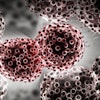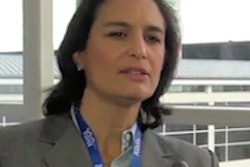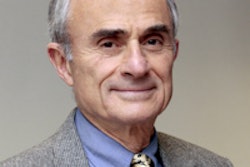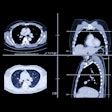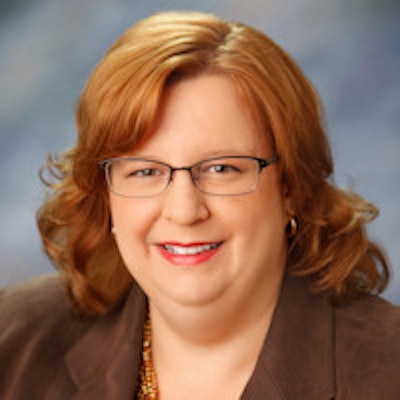
On April 30, the Medicare Evidence Development and Coverage Advisory Committee (MEDCAC) met to evaluate the potential efficacy, benefits, and harms of CT lung cancer screening in Medicare beneficiaries. The committee shocked the radiology community by returning a vote of low confidence, which came despite the fact that the U.S. Preventive Services Task Force (USPSTF) reached a very different conclusion last December.
Some of the reasons cited by the MEDCAC panel included concern about harm from radiation exposure, questions about the validity of the conclusions drawn by researchers in the National Lung Screening Trial (NLST), and doubts about the reproducibility of patient outcomes outside of a clinical trial.
I spoke with Dr. Ella Kazerooni, chair of the American College of Radiology (ACR) Committee on Lung Cancer Screening, and she shared the frustration many screening proponents feel about the vote.
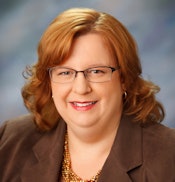 Teri Yates from Accountable Radiology Advisors.
Teri Yates from Accountable Radiology Advisors.
"We [the ACR] are very disappointed," Kazerooni told me. "The USPSTF spent two to three years to make their decision to recommend lung cancer screening based on a long, thoughtful review. In less than one day of presentation and less than two hours of discussion, MEDCAC reached a decision that completely undermined that."
While ACR disagrees with MEDCAC's conclusions, the committee's opinions are just one source the U.S. Centers for Medicare and Medicaid Services (CMS) will consider as it makes a decision about whether to cover screening, Kazerooni noted.
"It's our job to help CMS come to the right place on lung cancer screening, and to do that we'll engage in a productive discussion about how they might ensure quality services and good outcomes," she said.
Promoting quality
Those efforts to promote quality services are unfolding quickly: ACR released new standards and quality assurance tools immediately after the MEDCAC meeting. The first edition of the Lung Imaging Reporting and Data System (Lung-RADS), published on May 1, contains assessment categories and management recommendations to promote uniformity in interpretation. The same week, ACR also unveiled its new ACR Lung Cancer Screening Center program, an accreditation program for lung cancer screening centers.
Kazerooni sees accreditation as one solution to MEDCAC's concerns about radiation dose. She also noted that the panel's focus on potential harm from radiation exposure was overblown compared to the actual risk.
"There were no radiologists on the panel; nobody on the panel who understood radiation safety, the low dose involved in screening, or the protections that already exist to prevent harm to patients on CT scanners today," she said.
Despite the availability of these new tools and guidelines from ACR, some luminaries in the lung cancer screening field understand the panelists' reservations about whether similar outcomes can be achieved as CT lung cancer screening programs expand. For example Dr. Denise Aberle, the national principal investigator of the radiology component of NLST, believes that CMS should approve Medicare coverage -- but also set up a mechanism for oversight.
"I do have some concerns about quality control and the outcomes that will be achieved outside of the controlled setting of a trial, and I think CMS should address that by using the same approach they used for oncologic PET scanning," Aberle said. "When coverage was expanded for new PET indications, they required reporting to a national registry as a condition of reimbursement. This led to the formation of the National Oncology PET Registry [NOPR] to further our understanding of PET. I think CMS should follow the same approach for lung cancer screening."
Her recommendation may be feasible because ACR, which also administers NOPR, is launching a new national lung cancer screening registry later this year.
Kazerooni and Aberle both pointed out that there is a misconception that all treatment provided to NLST participants happened in academic medical centers.
"All of the patients were screened at a trial site, but quite a few -- half or more -- received management and follow-up care at other facilities," Aberle said. "We provided written recommendations for management to the referring physicians, but the care was delivered at a local level."
This model represents Aberle's vision of how future screening should be implemented, and she said it is highly preferable for patients to be screened by hospitals in their own communities with support as needed from major medical centers. She also asserts that this approach will be critical to the successful implementation of screening across all socioeconomic and cultural groups that are at risk of lung cancer.
Moving ahead
Despite the contention by MEDCAC panelists that lung cancer screening is not ready for prime time, providers across the country are moving ahead with their programs in anticipation of the coming reimbursement by commercial payors next year. To ensure quality and optimal outcomes, Kazerooni and Aberle recommend the following:
- Don't make it a radiology program. Lung cancer screening programs must be transdisciplinary, with full collaboration between radiology, pulmonology, thoracic surgery, and oncology, as well as other pertinent specialties.
- Use standardized scanning protocols and adhere to guidelines such as ACR Lung-RADS for interpretation and management of patients.
- Embed smoking cessation within the screening program.
- Collect data and analyze outcomes.
- Participate in a registry to further research on screening.
Aberle's bottom line on screening is to expand -- but do it responsibly.
"[When it comes to quality,] the distinction is not academic versus community practice," she said. "It is about the commitment to provide a systematic, evidence-based program that will follow practice guidelines and can refer patients to appropriate subspecialists. That commitment clearly exists in community practice as well. What I don't want to see is a screening center set up for entrepreneurial intent outside my Nordstrom in a shopping center."
Teri Yates is the founder of and principal consultant at Accountable Radiology Advisors, a consulting practice that helps radiologists and hospitals deliver higher-value services. You can contact her directly at [email protected], or visit www.accountableradiologyadvisors.com for more information.



